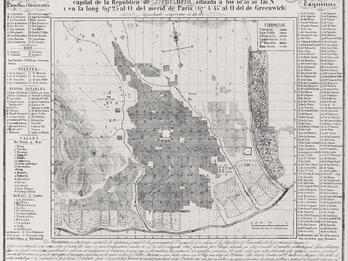Bene Zion: A Religious-Moralistic Textbook for the Youth of the Israelite Nation
Ninth Section. Concerning the Duties of Mankind as Citizens
374. No man, in isolation, can gain for himself the means through which to satisfy his physical needs and develop his spiritual strength; he has almost no opportunity to practice the various virtues.
375. The instinct of self-preservation, therefore, forces the human being to join in society with others, to unite and increase his strength together with theirs, and so to achieve a serene position in life and to prolong his existence. [ . . . ]
393. The institutions that promote order and welfare and secure the nation’s peace, and which cost immense sums, are borne by civil society; such costs are known as public expenditures. These expenditures are distributed among all members of society in relation to their fortune, and each individual must pay the amount he owes. All the payments together, known as the government revenue, flow into the state treasury, from which the expenditures are paid.
394. The collection of the contributions, the payment and remuneration of the state’s requirements, the drafting and execution of laws, the foundation and maintenance of all necessary and useful institutions, the appointment of clergy to church service, the appointment of ministers, council members, judges, teachers, military commanders, etc., the determination of their duties and salaries, the declaration of war and peace, the signing of friendly pacts with other nations, etc., all together make up the duties of the state administration, which is entrusted to the highest-ranking person in the state. This person is called: emperor, king, duke, etc. The rightful leader of every civil society is appointed by God, so that, according to His will, the society is led with justice, gentleness, and love, and its good fortune is promoted.
Daniel 4:22 “So that you (Nebuchadnezzar) convince yourself that the Highest (God) directs the rule over mankind, and entrusts it to one who pleases Him.”
395. We should love our fatherland, meaning its constitution, laws, institutions, customs, and traditions, treasure it above all others, and support and promote the common public interest.
Credits
Published in: The Posen Library of Jewish Culture and Civilization, vol. 6.



